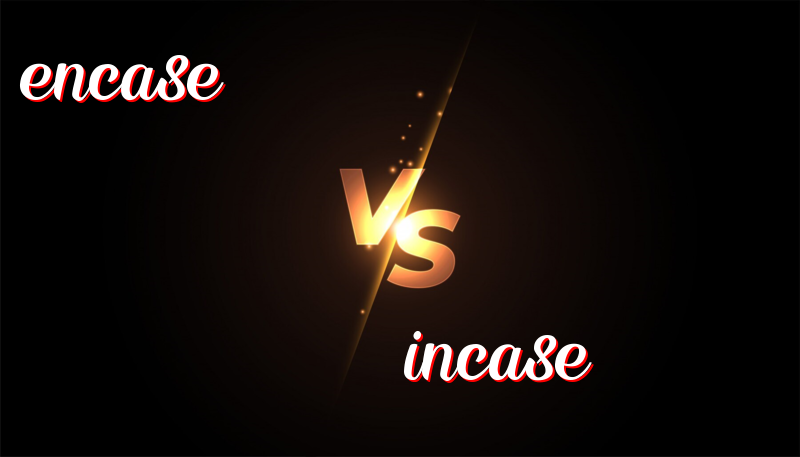Understanding the Difference Between Encase and Incase
Understanding “Encase” vs “Incase”
History of the Words
The word encase comes from the old French word “encaser,” which means to put something into a case or box. It has been used in English for many years.
The word incase is less common in current English. Sometimes, people mistakenly use “incase” when they mean “in case,” which is a phrase, not a single word.
How to Use Them
Encase is a verb. It means to cover or surround something, like putting something inside a box or a container.
Incase is not commonly used as a standalone word in English. It might be found in old texts, but today, people often mean “in case,” which is different. “In case” is a phrase used to talk about what to do if something happens.
Trick to Remember the Difference
Remember that encase is about putting things in a “case” or covering them. Use “encase” when you think of wrapping or covering.
For incase, try to remember it as part of the phrase “in case,” which helps you talk about possible situations.
Example Sentences for “Encase”
- She will encase the gift in a beautiful box.
- The ice will encase the car doors during winter storms.
- They encased the valuable painting in glass.
- The dough will encase the sweet filling inside.
- The old letter was encased in plastic to protect it.
Example Sentences for “Incase” (typically in case usage)
- Take your umbrella in case it rains.
- Bring a coat in case the weather gets cold.
- Keep some snacks in your bag in case you get hungry.
- Check the map in case you get lost.
- Save money in case of emergency needs.
Summary
To sum up, encase is about putting or covering something inside another. Incase is not often used alone in modern English; rather, it’s mistakenly used when people mean “in case” to indicate what to do if something happens. Remember to use these words properly based on their meanings and origins.

Leave a Reply
You must be logged in to post a comment.